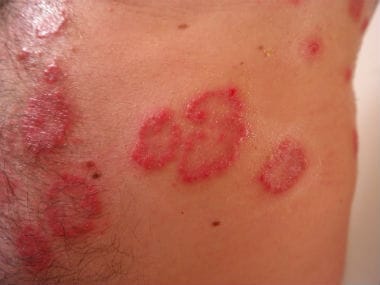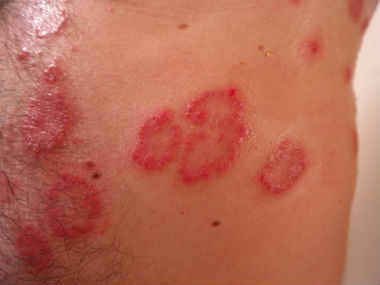Kim Kardashian West, the reality TV star and businesswoman, launched a line of body make-up for people living with psoriasis earlier this year. The inspiration: her own struggles with the autoimmune condition in which skin cells grow so quickly that they leave the skin looking blotchy and scaly. Originally believed to be contagious, psoriasis usually occurs in people who have a family history of the disease - Kardashian West’s sister Kris Jenner has psoriasis, too. Usually, psoriasis affects the skin of the arms (especially elbows), legs and scalp, although it can also affect fingernails, toenails and skin folds including the crotch. [caption id=“attachment_7289771” align=“alignleft” width=“380”]  Representative image. Image by Hans Braxmeier from Pixabay[/caption] According to one estimate, psoriasis affects 0.44% to 2.8% of the population in India - with twice as many cases recorded in men. In May, TV actor Rashmi Desai, known for her role in Uttaran, told news organisations that she was diagnosed with psoriasis late last year and was taking steroids to get better. She had added that she had put on weight because of the medicines. Despite steps to raise awareness about the disease globally, myths about psoriasis persist. Here’s a crash course in the top three myths and facts about psoriasis. Myth 1: Psoriasis is infectious Psoriasis is genetic and is triggered by environmental factors. The disease sends the immune system into overdrive - the immune cells then attack the body’s own skin cells, leading to inflammation and patches. Psoriasis is not infectious and doesn’t transfer through contact with a patient. Stress can exacerbate the condition in some patients. Broadly speaking, psoriasis can be divided into two groups:
- Pustular psoriasis, in which patients get white non-infectious pustules surrounded by red splotchy skin. This type of psoriasis usually affects the skin on the feet and palms. It may or may not be itchy and painful.
- Non-pustular psoriasis is the more common type of psoriasis. Further sub-types include: a) Psoriasis Vulgaris, which accounts for 80-90% of reported cases. The condition is also known as plaque psoriasis because patients usually get painful and inflamed patches of skin covered with silvery-white patches (plaque) of dead skin. b) Psoriasis erythroderma is rare and causes inflammation and exfoliation. This type of psoriasis can be fatal as the skin loses its temperature control and barrier functions.
Myth 2: Psoriasis is a skin disease Psoriasis is actually a disease of the immune system. Comorbidities or diseases that are known to occur with psoriasis include high blood pressure, cardiovascular disease, obesity, diabetes and psoriasis arthritis. Out of these, psoriatic arthritis is the most common. According to one estimate, 10% to 30% of people with psoriasis can get psoriatic arthritis - a painful swelling in the joints. In this type of arthritis, there is inflammation in the joints and connective tissue of bones. Apart from the skin, psoriasis is also found on nails - it can lead to discolouration and crumbling of nails along with the development of lines on the nails and thickening of the skin underneath. Myth 3: Psoriasis can be treated with medicines alone Psoriasis is a lifelong chronic condition that requires regular management with a combination of oral drugs, topical ointments and lifestyle changes. Your doctor may prescribe salicylic acid, topical retinoids or vitamin D analogues to manage symptoms like itchiness and swelling. It is also important to keep the skin moisturised. Medical practitioners are also using light therapy and immunomodulators as treatment options now. People living with psoriasis are at high risk for obesity and its associated comorbidities - it is, therefore, crucial for them to lead a healthy lifestyle with plenty of exercise and balanced, nutritious meals. Quitting smoking and reducing stress levels also help. Health articles in Firstpost are written by myUpchar.com, India’s first and biggest resource for verified medical information. At myUpchar, researchers and journalists work with doctors to bring you information on all things health. To know more on this topic, please visit https://www.myupchar.com/en/disease/psoriasis


)

)
)
)
)
)
)
)
)



